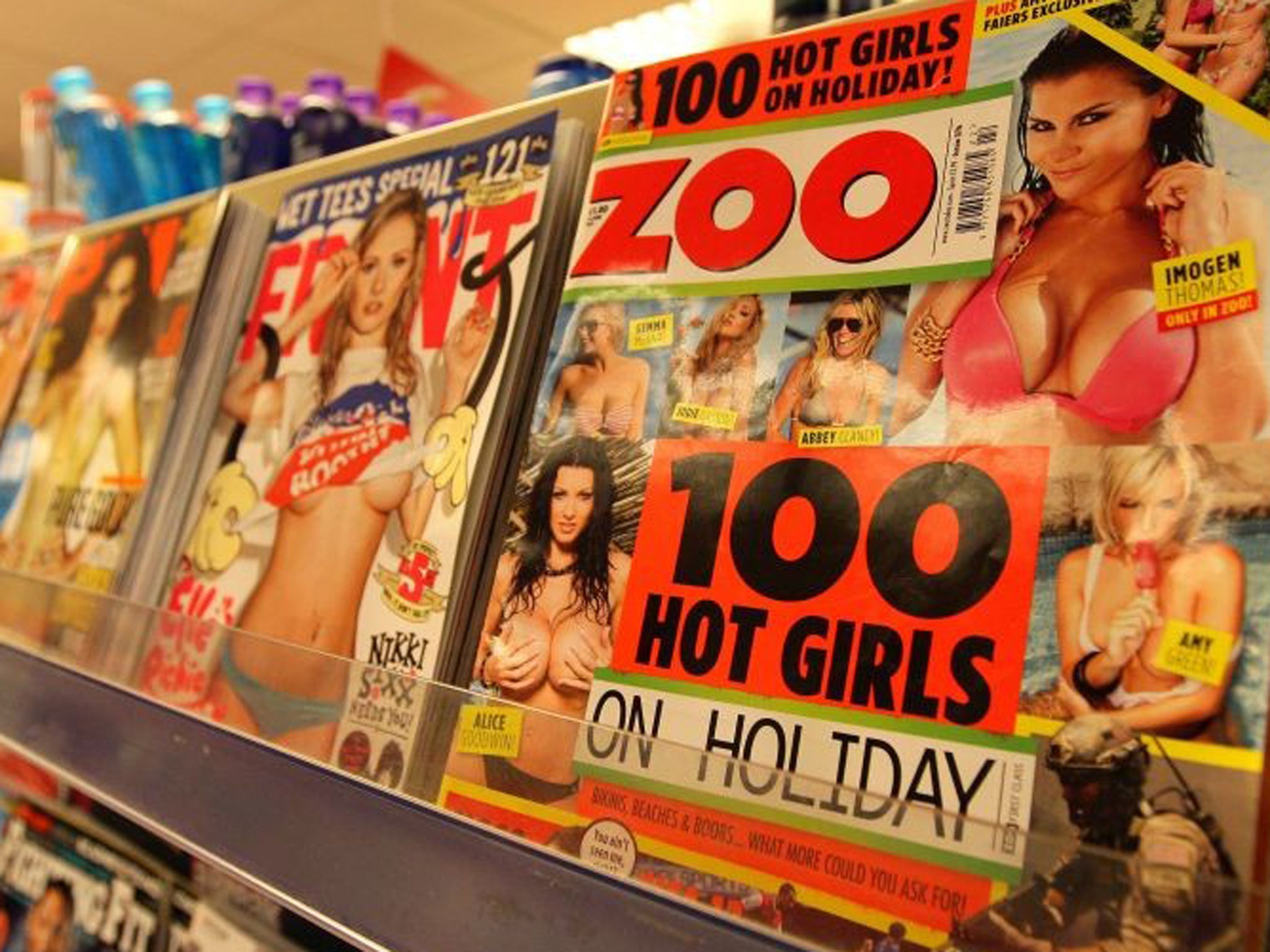Lose the Lads Mags: It's not about the nudity
It's true that both feminist campaigners and authoritarian Islamic states advocate covering up female bodies on magazine covers - so let's be clear about the distinction

How can covering up women at one time oppress them, and at other times empower them? Why, when some women take their clothes off for money, are they objectifying themselves, and at other times simply performing? Why are some images of women objectification and others simply art? Essentially, how can the same action mean two different things? One thing must be understood: it’s not about nudity.
Take the recent Lose the Lads’ Mags campaign. This is spearheaded by two organisations which fight for gender equality (UK Feminista and Object), but some have argued that covering up lads’ mags in shops is actually a misogynistic action. ‘The only noteworthy difference between Britain's prissy hiding-away of lads' mags and Dubai's is that here it isn't Koran-reading officials in robes who have demanded that bikini-wearing Chloe from Essex be put behind a modesty block - it is supposedly radical feminist lawyers’, argues Brendan O’Neill in the Huffington Post. Wrong. This hiding-away is being done for two very different reasons, and people like O’Neill need to realise this.
Authoritarian Islamist states use gaffer tape on lads’ mags in airports for the same reason they want to cover up real women’s bodies- but Lose the Lads’ Mags wants to do it to protect not only children but the female salespeople who must handle this material. O’Neill’s comment that the campaign is promoting a ‘weak, meek’ image of women suggests that he has failed to grasp the difference between a woman seeing another woman’s naked breasts, and a woman being forced to handle and sell sexist material. As Sophie Bennett, a spokesperson for the campaign, explains, ‘The issue for the thousands of people who have called on shops to lose the lads’ mags is absolutely not about nudity. It’s about sexism.’
Annie Leibovitz’ infamous portrait of naked and pregnant Demi Moore on the cover of August 1991’s Vanity Fair was, whichever way you look at it, empowering. It would not make most women uncomfortable. But Zoo’s competition inviting readers to win a boob job for their girlfriend, a prize intended to "transform her into a happier, more generous, intelligent, spiritual, interesting ... version of the slightly second-rate person she is today"? It probably would.
Another frequent response to the movement is that it’s all very well getting rid of lads’ mags, but women’s mags remain the true problem. Some argue that ‘#LoseTheLadsMags is well meaning but misguided’, some that ‘lads’ mags aren’t as bad as the gossip rags’. But these arguments are flawed, because different problems need different solutions. Women hating their bodies is a problem, and it is a problem that magazines like Closer, Cosmopolitan, Glamour contribute to in various ways, but it isn’t the same problem of sexism that is being dealt with by the Lose the Lads’ Mags campaign.
One analogous issue concerns the difference between burlesque and strip clubs. Caitlin Moran writes that burlesque dancers at their best ‘explore sexuality from a position of strength, with ideas, and protection, and a culture that allows them to do, creatively, as they please’. They are in control, unlike those performing in a strip club, whose shows are tailored to the audience, replacing the power into the hands of men. Both are taking off their clothes for money, yes, but with contrasting incentives that are key to understanding whether such shows promote sexism. Again, it’s not about nudity.
The portrayal of women in the media today is cloying with confusion and we can’t afford not to differentiate. Why is the concealing of lads’ mags in shops in the UK so far removed from the ‘sticky handmade burqa’ that covers up such magazines in Dubai airport? I’ll say it one more time. It’s not about nudity.
Join our commenting forum
Join thought-provoking conversations, follow other Independent readers and see their replies
Comments
Bookmark popover
Removed from bookmarks